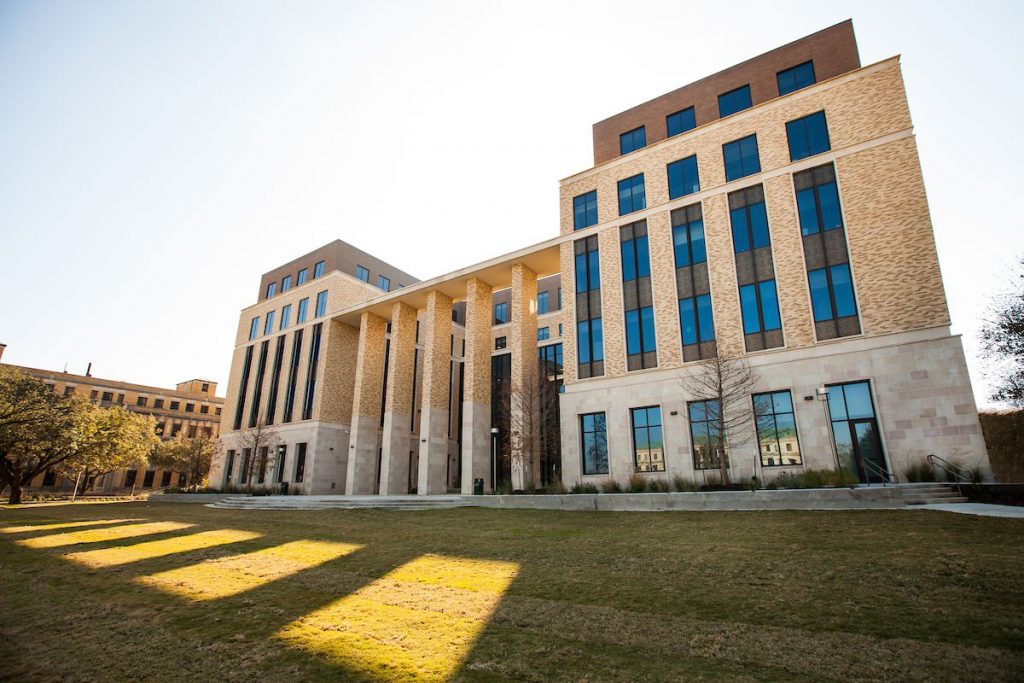From Unlikely College Student to Award-Winning Scientist
Brian Anderson is a recipient of the 2021 American Psychological Association Distinguished Scientific Award for Early Career Contribution to Psychology, but he didn’t always plan to be a research scientist much less a college grad.

By Amber Francis ‘22
 Brian Anderson, an associate professor in the Psychological & Brain Sciences Department in the College of Liberal Arts at Texas A&M University, is reshaping the psychology field as we know it.
Brian Anderson, an associate professor in the Psychological & Brain Sciences Department in the College of Liberal Arts at Texas A&M University, is reshaping the psychology field as we know it.
“When I started out as a perception scientist, the generally accepted model of attentional control held that what we pay attention to is the joint influence of two factors,” Anderson explained. “It was a theoretical model that had stood since the 1960s and came into prominence in the 1980s and 1990s; a conceptual framework that had been taken for granted for decades.”
Anderson’s groundbreaking research entirely reconceptualizes attention as the joint influence of three different control mechanisms rather than merely two, with reward learning having a direct influence on the control of attention.
His research efforts combined with work conducted in his lab, quickly established Anderson as a consistent leader in this area of research and made him a recipient of the 2021 American Psychological Association (APA) Distinguished Scientific Award for Early Career Contribution to Psychology, a recognition only one other professor in Texas A&M history has received.
“This is a tremendous honor. The past recipients include a number of people who I have really looked up to and have drawn inspiration from over the course of my career. To be linked together with them through this award is sincerely humbling,” Anderson shared. “This award is also of personal significance to me in that my late PhD advisor, Steven Yantis, received this same award in 1994; it is rewarding to feel as though I am following in my academic father’s footsteps and continuing his legacy.”
A better understanding of how reward learning influences attention will hopefully lead to a number of new insights about how to help people more effectively cope with the psychological challenges of self-destructive habits like drug addiction, where people often struggle to get their minds off of doing the drug even though the person genuinely wants to quit.
“As a scientist, you persevere in your work in the hopes of making an impact that extends beyond the narrow boundaries of your own sub-field and leaves a mark on the discipline more broadly, and a recognition of this nature is an encouraging source of evidence that my work is having that sort of impact.”
For all of his award-winning accomplishments and scientific impact, if asked in his youth it was unlikely Anderson would have envisioned himself a revolutionary in the psychological field, much less a college graduate.
The push to pursue a higher education came from none other than Anderson’s grandfather, who deeply valued an education despite not having the opportunity to attend more than just a handful of college classes. That experience, however brief, left a profound impact on the man and was something he wanted for his grandson.
“He would tell me about how impactful the brief experience was for him and how much he wanted me to have that sort of experience,” Anderson said.
Despite his grandfather’s encouragement, Anderson was still skeptical of whether an undergraduate education was achievable for someone such as himself, initially trying his hand in the manual labor market instead. But things didn’t quite go to plan, with Anderson making little headway there in spite of his best efforts.
Without a clear career path in front of him and his curiosity buoyed by his grandfather’s enthusiasm about the mysterious entity known as “college”, Anderson tentatively dipped his toes into the world of higher education as a part-time student, figuring he would likely flunk out.
“Much to my surprise, my world really came alive there. I found a place where I felt like I really had something to contribute. My grandfather passed away shortly after I began my PhD studies at Johns Hopkins University. I feel like he was able to live out one of his dreams vicariously through our relationship, and I will always cherish that relationship and the profound impact that it had on me.”
When it came to choosing a field of study, Anderson didn’t hesitate for a second in choosing to pursue psychology.
“Perception was always something that fascinated me. How can two people gaze upon the same thing yet take something so very different away from what they saw? How does what I see influence who I am as a person, and how does who I am influence what I see,” Anderson questioned. “All I really know is what I have experienced through my senses: what I have seen, heard, felt, etc. How is my understanding of the world limited or even distorted by this dependence? When a person hallucinates, do they literally see something? This is the kind of stuff that kept me up at night, and often still does!”
Despite this keen interest and academic sense of curiosity, it wasn’t until Anderson started his master’s program in psychology at Villanova University that he learned academic research could be a paid job. Anderson, who thought all professors were exclusively teachers and scientists worked for companies inventing products, was floored by this revelation.
Upon learning that he could study perception and attention for a living, it took him less than 30 seconds to figure out what he wanted to do.
“In a lot of ways, I have been a pretty naïve person who stumbled my way into being a professor, which has probably been an asset to me intellectually in more ways than I know,” Anderson joked. “It isn’t difficult to think outside of the box when you’ve never really been inside of it.”
Upon this realization, Anderson began the hunt for professional research opportunities, applying to any top-tier research schools he thought could set him up with the resources needed to start a lab and launch an independent research program. Texas A&M was the first such university to reach out to Anderson, offering him a package that contained all of the necessary resources to get his research program off the ground, and granting all of those resources immediately upon his hire.
It wasn’t just the package that enticed Anderson, but also the prospect of joining a group of new professors hired at Texas A&M to jump-start a new investment in human brain imaging, which is among the techniques used in his research. For a curious researcher like Anderson, the opportunity to build something from the ground up and chart new territory was something he couldn’t pass up.
“I’m continuing to play an active role in this process as we look to establish a new brain imaging facility, so Texas A&M continues to be an exciting place to call my academic home,” said Anderson.
Since his hire, Anderson said he has always felt supported by the College of Liberal Arts in his research. The College’s clear expectations provided him with a deep sense of security that allowed him to focus on said research, proclaiming the staff support both at the department and the college level to be second-to-none.
“The enthusiasm from the college for my work has been a real source of encouragement as well; they are obviously invested in me and I feel that,” Anderson said. “The College continues to be a staunch supporter of advancing human neuroscience research and I am honored to be a part of that.”
